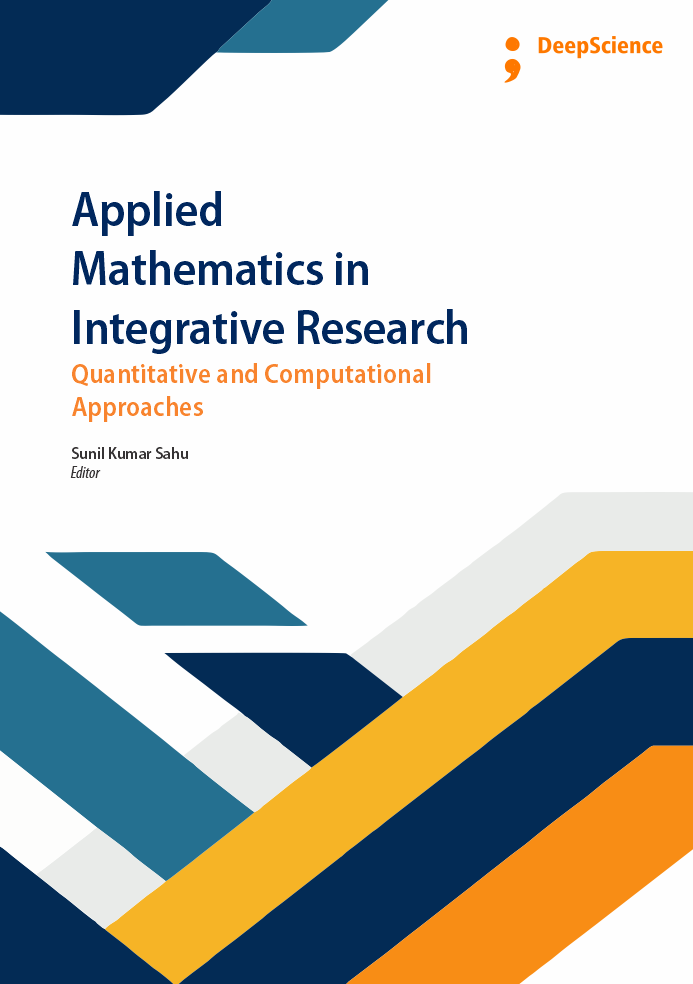Applied Mathematics in Integrative Research: Quantitative and Computational Approaches
Keywords:
Mathematical Modeling, Simulation, Optimization, Machine Learning, Big Data Analytics, Artificial Intelligence, Bayesian ModelingSynopsis
Mathematics has long been recognized as the universal language of science, providing the foundation for discoveries across natural, social, and technological domains. In the contemporary era of rapid globalization and digital transformation, the role of mathematics has become even more critical. From data science and artificial intelligence to economics, healthcare, and engineering, mathematical tools are at the heart of problem-solving, prediction, and innovation. This edited volume, Applied Mathematics in Integrative Research: Quantitative and Computational Approaches, is an endeavor to highlight the multifaceted applications of mathematics in addressing complex, real-world challenges. The book brings together contributions from researchers and academicians across diverse disciplines, showcasing how mathematical models, computational algorithms, and analytical techniques are being integrated into emerging fields. The chapters collectively explore themes such as optimization, big data analytics, financial modeling, energy management, and sustainability. By bridging theory and practice, the volume underscores the power of mathematics not only as an abstract discipline but also as a dynamic instrument for societal advancement.One of the key strengths of this work lies in its interdisciplinary orientation. Each chapter demonstrates how mathematics interacts with other domains—be it computer science, economics, environmental studies, or life sciences—to generate meaningful solutions. This approach aligns with the growing demand for integrative research, where collaboration across disciplines is essential for innovation.
The editors express their deep gratitude to all contributors for their scholarly efforts, and to the publishing team for their support in bringing this book to fruition. It is our sincere hope that this volume will serve as a valuable resource for students, researchers, and practitioners, inspiring further exploration into the vast potential of applied mathematics in contemporary research.
References
Pawlicki, M., Choraś, M., Kozik, R., & Hołubowicz, W. (2020). On the Impact of Network Data Balancing in Cybersecurity Applications. ncbi.nlm.nih.gov
Pauling, C., Gimson, M., Qaid, M., Kida, A., & Halak, B. (2022). A Tutorial on Adversarial Learning Attacks and Countermeasures.
Silvestri, S., Islam, S., Papastergiou, S., Tzagkarakis, C., & Ciampi, M. (2023). A Machine Learning Approach for the NLP-Based Analysis of Cyber Threats and Vulnerabilities of the Healthcare Ecosystem †. ncbi.nlm.nih.gov
Strobel, M. & Shokri, R. (2022). Data Privacy and Trustworthy Machine Learning.
Kumar Murakonda, S. & Shokri, R. (2020). ML Privacy Meter: Aiding Regulatory Compliance by Quantifying the Privacy Risks of Machine Learning.
Gu, J. & Oelke, D. (2019). Understanding Bias in Machine Learning.
Pombal, J., F. Cruz, A., Bravo, J., Saleiro, P., A. T. Figueiredo, M., & Bizarro, P. (2022). Understanding Unfairness in Fraud Detection through Model and Data Bias Interactions.













